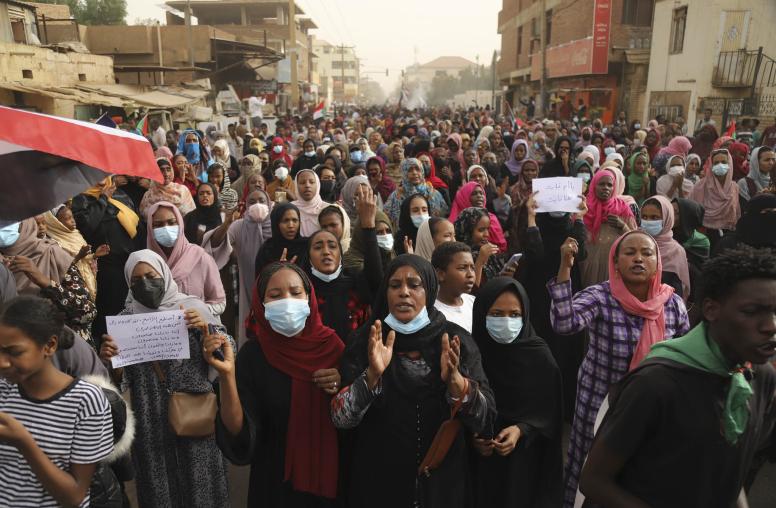Mediation in Nonviolent Action Campaigns
Part One in a Series on People Power, Peace, and Democracy
Read the Event CoverageMany nonviolent action movements struggle with how to engage with their opponents. Mediation can help prevent an escalation toward violence and resolve a movement’s underlying issues. Mediators can help facilitate the active participation of movements in peace processes and bridge divides between movements, governments, and other stakeholders to ultimately foster durable democratic development.
How do major social transformations happen? And how can transformation happen without violence? The examples of iconic leaders such as Mahatma Gandhi and Dr. Martin Luther King, Jr. speak to the power of nonviolent action to achieve these transformations. Yet nonviolent action on its own is no guarantee of long-term sustainable change. Achieving this kind of change often requires not just nonviolent action, but peacebuilding processes of dialogue, negotiation, and mediation between the various constituencies within movements and their opponents.
To better understand the intersections of nonviolent action and peacebuilding processes, USIP hosted the first in a series of four events on people power, peace, and democracy. The event series highlights multiple groundbreaking research projects and features insights from activists and international practitioners and policymakers to provide viewers with actionable takeaways.
This first event highlighted new research that explores the role of third-party mediation in nonviolent uprisings. The conversation provided key insights for both practitioners and policymakers by focusing on central aspects of mediation processes, such as the strategies of mediators and their relationships with conflicting parties—as well as examining how they can lead to agreements between governments and nonviolent movements.
Continue the conversation on Twitter with #PeoplePower4Peace.
Speakers
Jonathan Pinckney, moderator
Senior Researcher, Nonviolent Action, U.S. Institute of Peace
Isak Svensson
Professor, Peace and Conflict Research, Uppsala University, Sweden
Daan van de Rijzen
Research Assistant, Peace and Conflict Research, Uppsala University, Sweden
El-Tigani Elhaj
Researcher based in Sudan
Juan Diaz-Prinz
Senior Expert, Mediation and Negotiation, U.S. Institute of Peace
Katia Papagianni
Director, Policy and Mediation Support, Centre for Humanitarian Dialogue


